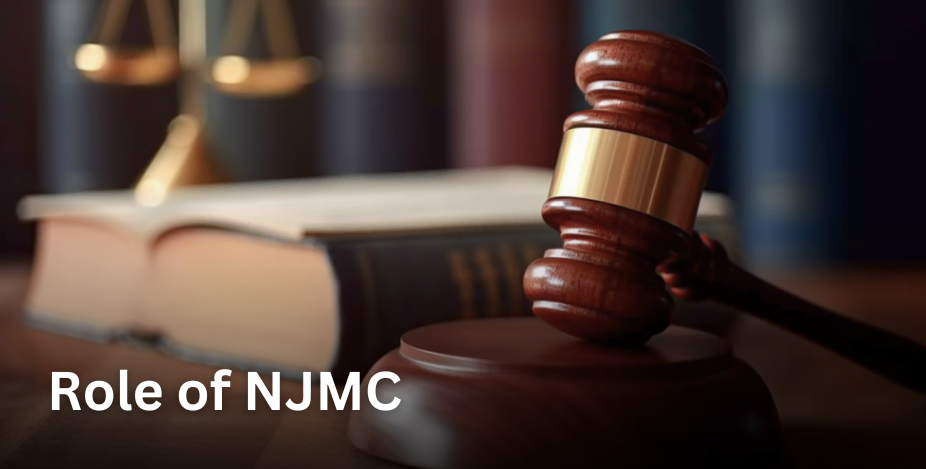New Jersey’s local municipal courts play an important role. They’re the first court most people see, handling about 6 million cases yearly. These courts cover many issues that happen close to home like traffic tickets or wide range of local matters. We’ll explain the role of NJ municipal courts so you understand if you ever visit one.
| Function | Description |
|---|---|
| Traffic Violations | Handle millions of traffic and parking cases annually |
| Minor Criminal Cases | Manage hundreds of thousands of disorderly persons offenses |
| Local Ordinances | Address thousands of municipal law violations |
| Initial Hearings | Conduct probable cause hearings for serious crimes |
| Legal Documents | Issue search warrants and set initial bail |

Functions & Responsibilities of NJ Municipal Courts
Adjudicating Local Matters Efficiently
NJ municipal courts (NJMC) tackle a variety of local issues. They resolve traffic violations swiftly, keeping our roads safe and orderly. If you get a speeding ticket, you’ll likely end up here. If you’ve received a traffic ticket and need to locate it online, you can easily do so through the NJ Municipal Court ticket lookup system, which simplifies the process of managing your case.
These courts also handle disorderly persons cases. This is another key role of NJ municipal courts. These are lower-level criminal offenses that don’t quite reach the level of felonies. Things like simple assault or shoplifting often fall into this category.
Enforcing municipal ordinances is another key job. Did your neighbor’s dog keep you up all night? The municipal court might be where you seek relief. They deal with noise complaints, pet regulations, and other local laws that keep communities running smoothly.
Initiating Serious Criminal Proceedings
While they don’t try major crimes, municipal courts play a crucial role in starting the process for serious offenses. They conduct probable cause hearings, which determine if there’s enough evidence to move forward with a case.
These courts also issue important legal documents. Need a search warrant? It often starts here. They also set initial bail for many cases, balancing public safety with the rights of the accused.
NJMC Structure and Governance
Integrating with State Judicial Framework
New Jersey has 515 municipal courts operating under state oversight. They’re part of a Unified State System, ensuring consistency across the state.
The Administrative Office of the NJ Courts sets guidelines that all municipal courts follow. This means whether you’re in Newark or Cape May, you’ll encounter similar procedures and standards.
Balancing Local Administration with Judicial Independence
Mayors and town councils appoint municipal court judges for 3-year terms. They can be reappointed, balancing local input with judicial continuity. This process is crucial to the role of NJ municipal courts in serving local communities.
While locally appointed, these courts maintain operational independence. They follow state-mandated procedures and ethical standards, ensuring fair treatment regardless of local politics.
Role of NJ Municipal Courts in Community Justice
Preserving Local Order and Safety Proactively
Municipal courts enforce local ordinances consistently. This helps maintain community standards and keeps neighborhoods livable.
They also implement community service programs. Instead of just fines, courts can assign community service. This approach often proves more effective in addressing minor offenses while benefiting the community.
Facilitating Alternative Dispute Resolution
Got a beef with your neighbor? Municipal courts offer mediation services. This can resolve disputes without the need for a formal trial, saving time and reducing stress for all involved.
By promoting community harmony through effective conflict resolution, these courts help reduce small claims filings. This keeps the judicial system from getting bogged down with minor disputes.
Financial Aspects and Ethical Considerations
Managing Revenue Generation Responsibly
In 2017, NJ municipal courts generated over $400 million in revenue. More than half went to municipalities, helping fund local services. This financial role of NJMC is significant but must be balanced with ethical considerations.
But money shouldn’t drive justice. That’s why there are ethical safeguards in place. Independent review committees oversee fine structures to prevent revenue-driven decision-making.
Optimizing Resource Allocation
Courts invest in infrastructure to serve you better. This includes technology upgrades to make your experience smoother and more efficient.
They also work to maintain appropriate staffing levels. This ensures cases are processed efficiently, reducing wait times and backlogs.
Navigating Challenges and Implementing Reforms
Enhancing Judicial Independence
There’s ongoing work to reform the appointment process for judges. The goal is to implement standardized selection criteria, ensuring the most qualified individuals serve on the bench.
Continuous education is also a priority. All municipal court judges must undergo mandatory judicial training, keeping them up-to-date on legal developments and best practices.
Modernizing Court Operations
Virtual access is expanding. More hearings are being conducted online, making it easier for you to participate without taking time off work or arranging transportation.
Case management is getting an upgrade too. The statewide Municipal Court Computer System is helping reduce case backlog, ensuring faster resolution of cases.
The role of NJ municipal court system is evolving to meet modern justice demands. They’re working to balance their traditional functions with new challenges and opportunities.
Looking ahead, these courts will focus on:
- Further enhancing judicial independence
- Leveraging technology for improved access
- Maintaining a balance between local needs and statewide consistency
By addressing these challenges, New Jersey’s municipal courts aim to serve as effective, fair, and efficient pillars of the state’s judicial system. They’re not just local courts; they’re potentially becoming a model for local justice nationwide.
Remember, whether it’s a traffic ticket or a neighborhood dispute, your local municipal court is often your first stop in the justice system. Understanding the role of NJ municipal courts helps you navigate the process more effectively and appreciate the vital function these courts serve in our communities.
